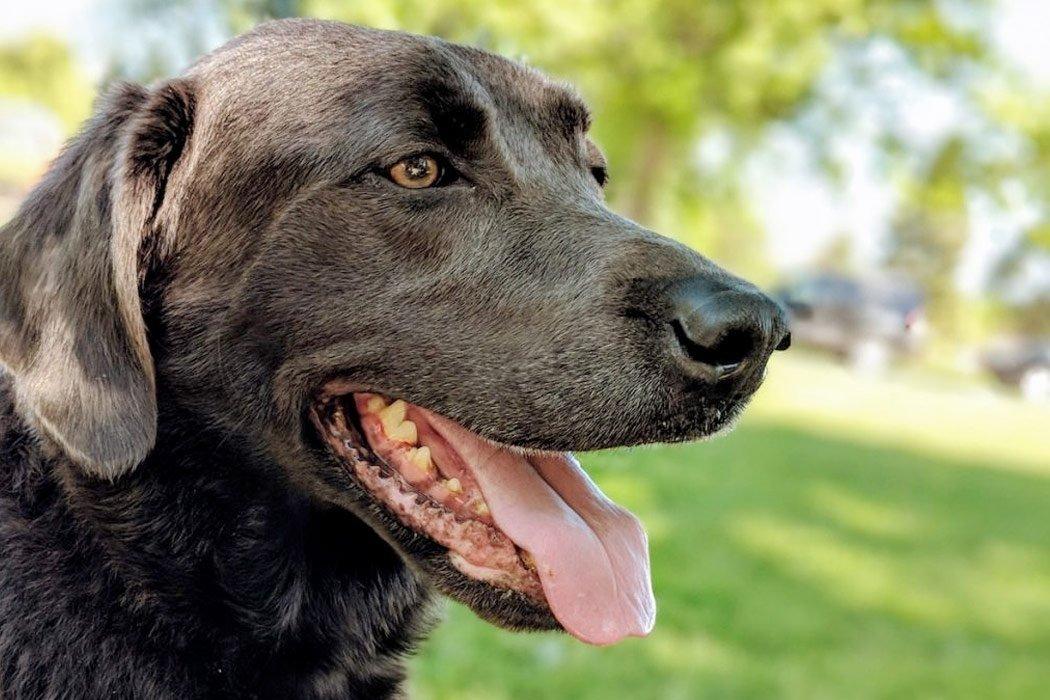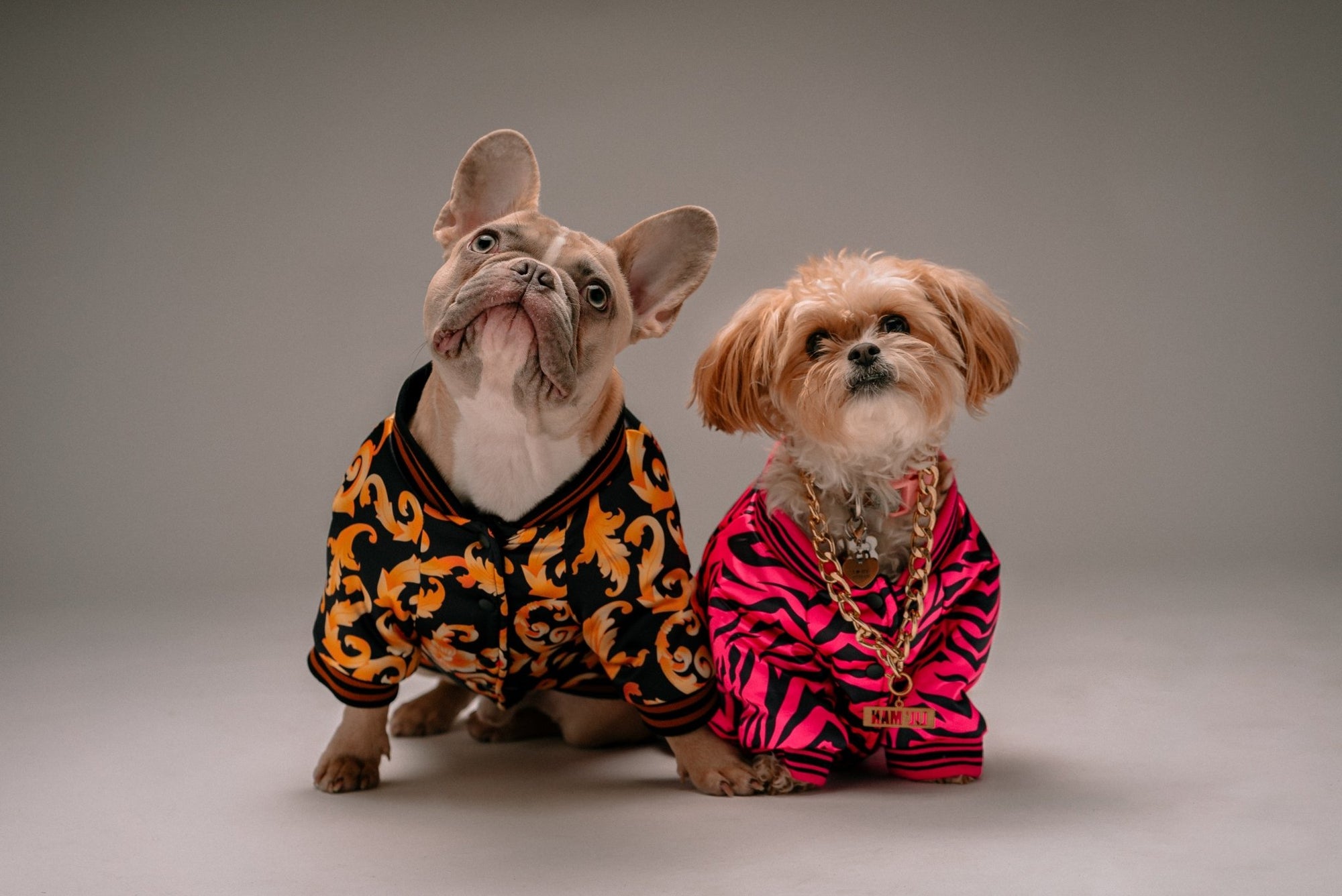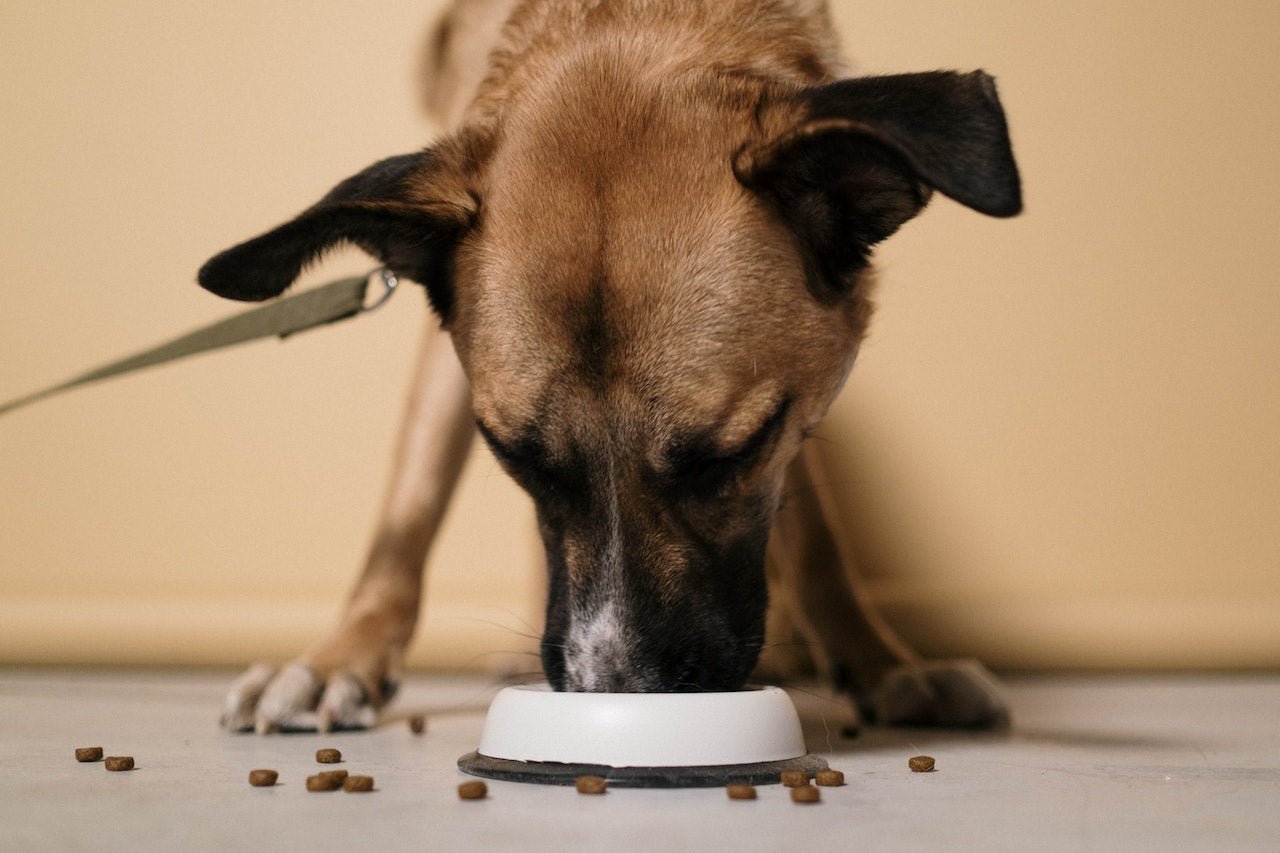Get the Facts About Dog Panting - After a walk or vigorous play, it is normal for your dog to pant. If paired with other symptoms, dog panting can signal that something is wrong, and you may need to take your furry friend to the veterinarian. We’ll break down what is healthy dog panting and when you should be concerned about your dog’s panting.
Typical Reasons for Dogs to Pant
Dog panting is normal behavior that shouldn’t raise too much concern unless it is coupled with other symptoms. Here are the main reasons dogs pant:
Dogs Pant to Cool Down Their Bodies
Because dogs do not sweat through their skin like humans, panting is the quickest way for dogs to express hot air from their lungs and replace it with cooler air. By panting, water evaporates off their tongue, which helps regulate their body temperature.
If your dog has been playing or walking, they may need to cool down. Also, if the weather is scorching, your dog may pant more due to the heat.
Dogs Pant When They Feel Anxious or Stressed
Even dogs can feel anxiety and stress. According to VCA Hospitals, symptoms of dog stress can include:
- Pacing or shaking
- Constant yawning, drooling and licking
- Whining or barking
- Changes in eyes and ears
- Shedding
- Panting
- Changes in bodily functions
- Avoids interaction or hides
If your dog is panting and showing some of these other symptoms, it is probably due to stress. Visits to the vet, fireworks, being alone, loud sounds, driving in the car, moving to a new home, or gaining or losing family members can cause stress. Facts About Dog Panting.
Does your dog get anxiety often? Relieve your dog’s stress by offering them a Dope Dog CBD Dog Treat---proven to safely calm and relax your dog.
Related Link: Separation Anxiety: How to Keep Your Dog Calm When You Leave

Dogs Pant If They Have Brachycephalic Obstructive Airway Syndrome
Some dog breeds are susceptible to Brachycephalic Obstructive Airway Syndrome (BOAS), which causes breathing difficulties from a narrow upper respiratory tract. Breeds prone to developing BOAS have flat faces and squashed noses, like a Pug, Boxer, or French Bulldog. Facts About Dog Panting. These breeds don’t pant efficiently, so they may do it more often to cool their bodies.
Dog Panting that Could be a Sign of Bigger Problems
If it isn’t warm out and your dog doesn’t need to cool down, then excessive panting may be a sign of more significant problems. If your dog’s panting is harsher or louder than normal, you should contact your veterinarian. It may be a sign of:
Heatstroke
During the summer months, if your climate is sweltering, your dog can get heatstroke—especially if it is left in a locked car. The Winslow Animal Hospital says the symptoms of heatstroke in dogs:
- Excessive panting
- Thirst
- High body temperature
- Staggering
- Fast heart rate
- Diarrhea or vomiting
- Sticky or dry tongue and gums
- Dark or bright red tongue and gums
Allergic Reactions
Sometimes dogs can have an allergic reaction to a new food or medication. Symptoms of an allergic reaction for dogs:
- Heavy panting
- Rasping breathing
- Lethargy
- Vomiting
Related Link: Does CBD Oil Help Dogs with Allergies

Respiratory Problems
Sickness or infections can cause respiratory problems for dogs. Symptoms include:
- Rapid panting
- Struggling to breathe
- Fever
- Coughing
- Lethargy
Cushing’s Disease
When a dog’s adrenal glands release too much cortisol, they can develop Cushing’s disease. WebMD for dogs says that Cushing’s syndrome makes it difficult for your dog to control weight, fight infection, and regulate blood sugar levels. This can often lead to other problems. Symptoms of Cushing’s Disease include:
- Weight Gain
- Irritability
- Higher blood pressure
- Thinning hair and skin
- Potbelly
- Increased thirst
- Heavy panting
Pain
Dogs can mask or don’t recognize they are in pain until they settle down. If your dog is panting at night or when he’s resting or other odd times, they may be in pain. Facts About Dog Panting. The American Kennel Club identifies these other symptoms of pain for dogs includes:
- Anxiety
- Agitation
- Barking and Whining
- Trembling
- Restlessness
- Rapid panting
Related Link: What Can I Give My Dog for Pain
Obesity
Overweight dogs can definitely struggle to breathe and will pant more from exercise or just walking. If your dog is overweight, you should contact your vet to determine a plan for getting your dog fit because obesity in dogs can lead to other problems and shorten their lifespan. Facts About Dog Panting.
Heart Problems
Dogs with heart problems struggle to breathe, so they will pant more to get more oxygen. Other symptoms include:
- Cough
- Lethargy
- Weakness
- Consistent panting

Is Your Dog Panting at Night?
If your dog pants at night and their room isn’t very hot, your dog may be feeling anxious or stressed. If they sleep in a separate room, your dog may be nervous about being alone or away from you. This is normal behavior for puppies that may feel nervous about being alone at night. Older dogs generally don’t pant from anxiety at night.
Ways to Help Your Anxious Dog
If your dog is anxious or stressed, there are several things you can do to help:
- Remove the dog from the stressful environment
- Find a quiet place for the dog to calm down.
- Give routine commands to distract the dog and provide a healthy environment.
- Pet your dog.
- Offer your dog a treat.
When to Call the Veterinarian
You should contact your veterinarian about your dog’s panting:
- If they have other concerning symptoms.
- If they haven’t been exercising.
- If they are not cooling down from the heat.
How Dope Dog Can Help Your Dog’s Panting
Most of the time, you don’t need to worry if your dog pants. It is a natural way for dogs to cool their bodies. If they are showing other serious symptoms, you may want to call your veterinarian. Dope Dog offers a variety of CBD oils and treats that can help your dog with excessive panting.
In cases of pain, anxiety, or trouble sleeping at night, you should buy Dope Dog CBD oils or treats to help your dog calm down and feel better.
Related Link: Ten Ways to Help Your Nervous Dog
What Should You Do for a Panting Dog
While panting is normal for most dogs, always schedule a vet visit if you are concerned about it. Dog panting can be a minor issue or a sign of a severe condition. When you get a professional examination, the vet will conduct a test to identify the cause of the panting. With that, you and the vet can work to find treatment options for your dog.
In the summer, heavy panting can be caused by the heat. In those situations, you will want to keep your dog cool. Getting your dog in a cold space can prevent heat stroke, discomfort, general panting, and even stress. Make sure to provide your dog with plenty of cool drinks. Remember that dogs can lose a lot of fluid from drooling. Facts About Dog Panting.
Along with that, you will want to find a calm and quiet place for the dog to get relief from the heat and sun. Air conditioning, shaded spots, and cooling mats will help your dog beat the heat.
Also, ensure that your dog is well-groomed. Some breeds can get a “summer cut” to keep them cool in the warmer months.
How Do I Know If My Dog Is Panting Too Much?
Normal panting has an average number of breaths per minute at 30 to 40 for most dog breeds. Keep in mind that smaller dogs will take more breaths than those large canines. Heavy panting should only be a concern when it happens regularly or for a long time on a consistent basis. If that is happening with your canine pal, then it is time to note your dog’s behavior and actions.
Although panting is entirely normal in dogs, you will want to watch out for a few signs. If your dog is lethargic, shaking, coughing, or acting strange, it is time to get to the vet.
There is no one set of symptoms that could indicate a problem. When your dog is panting more than average or at different intervals, that could signify that something is wrong.
Is Panting at Night a Concern?
It can be concerning to see your pup panting heavily or excessively when you are relaxing at night. Some dogs feel anxiety at night, especially if they are placed in another room for their bedtime. Heavy panting is typical for puppies, but it can happen with older dogs as well.
You can reduce some anxiety by allowing the dog to sleep in the room with you. If that is not possible, put on the radio or television, so your dog has a little company that night. For those who have a few canines in their homes, allow them to sleep in the same room. With that, your dog will feel more relaxed and comfortable at night.
After all of that, your dog should stop heavily panting at night. If it is still happening, your dog might have an underlying health condition, which will require a trip to the vet.


















